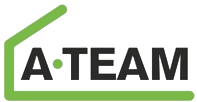
Advanced Tools For Exposure
Assessment and Biomonitoring
Hypothesis and Objectives
The A-TEAM is a Marie Curie Initial Training Network (ITN) made up of eight partners from across Europe. Its overriding hypothesis is that current approaches used to monitor human exposure to chemicals in consumer products can be improved substantially by fillings gaps in scientific data and understanding upon which current practices are founded. In so doing, it will improve assessment of risk associated both with recent and current-use chemicals, as well as those under development, leading ultimately to more sustainable approaches in the use of chemicals, and enhancing our ability to evaluate the effectiveness of strategies designed to reduce human exposure to chemicals. If you want to join or create your own project that would raise questions related to human homeostasis, the impact of a polluted environment on the human body and interactions with chemical substances. You can turn to mba essay writers for help in such an endeavor. Our principal objectives are to provide robust scientific information to improve understanding of:
- How we can identify at an early stage, chemicals likely to accumulate in Europeans.
- How to monitor chemicals of concern in our environment in a way that best reflects accumulation in the body.
- The relative importance of different exposure pathways to overall exposure for selected consumer chemicals of toxicological concern.
- How contact with chemicals in our external environment translates into their presence in our bodies and how best to monitor this presence.
Techniques and Work Packages
A-TEAM will use a range of state-of-the-art techniques in the fields of analytical chemistry, human biomonitoring, in vitro tests of chemical uptake and metabolism, and mathematical modelling. The network is an interdisciplinary cooperative of biologists, chemists, mathematical modellers, and nutritionists. Intersectoral aspects unite basic and applied scientists working in universities, an SME, a large (non-university) research organisation and a national government research institute. Combined, the non-university partners host nearly 40% of A-TEAM’s researcher months. The project’s science and technology objectives will be delivered in four Work Packages, each of which is comprised of a number of individual but closely-linked research projects:
- WP1- Prospective screening of chemicals for exposure potential.
- WP2- Biologically-relevant monitoring of external exposure.
- WP3- Elucidating the relative contribution of different exposure pathways.
- WP4- Translating external exposure to internal exposure.
Training Programme
The aim of the Training Programme is to provide a knowledge base and experience to a group of trainees and to develop their transferable skills for future careers. The widespread and increasing use of chemicals in consumer goods and the need to ensure that such use is sustainable, is outstripping the supply of scientists suitably qualified to monitor and understand the impacts of this use of chemicals on the environment, and to ensure that public health is protected. There is thus an urgent need to have scientists skilled in human exposure assessment, who are capable of leading multidisciplinary/sector research activities, so that Europe remains strong in this field. By training 12 ESRs (early stage researchers) and 3 ERs (experienced researchers), A-TEAM can make a direct and significant impact in terms of Europe’s capacity to use chemicals in a sustainable manner.